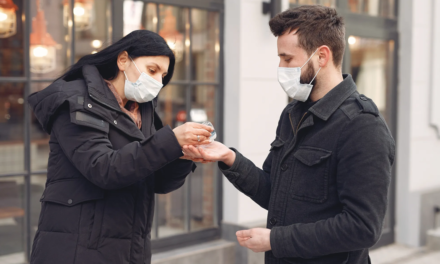Writers have been scribbling about vaccines since October 12, 1768, when Dr. Thomas Dimsdale, an English physician, vaccinated Catherine the Great. Russia was never the same. Dr. Dimsdale was the Pfizer and Moderna of his day. The Empress told her friend Voltaire about it. He reportedly wrote, “inoculation skeptics are truly blockheads, ignorant or just wicked.”[1] Apparently, those early Russian skeptics did not evolve. Some now live in America.
I’m not writing about the safety or efficacy of Covid-19 inoculations. My focus is on the underlying ethics of inoculation writing. Writing anything for public consumption, to inform, educate, or motivate readers is subject to three fundamental ethical writing norms—honesty—truthfulness—transparency. Is the writing honest or politically motivated? Is it true—based on hard science, or only consistent with one side of the political spectrum? Transparency is the most important ethical imperative on vaccines or inoculation. shots in the arm. Can the reader tell from the writing what actions are being described? Transparency is behavior; it implies openness, communication, and accountability.
Most writers on vaccines are motivated to tell the truth, write openly and honestly. Some do not because their goal is not to inform or educate. If they are politically motivated, their ethics are suspect.
CNN reported, “News organizations are at risk of ‘creating false connections and misinformation’ when they write headlines that suggest a link between vaccinations and deaths or other health problems where one does not necessarily exist, according to a new study published by the non-partisan non-profit organization Advance Democracy.”[2]
NBC News interviewed, “Seven pediatric health experts about the risks of going on a family vacation before children have been vaccinated. The consensus among them was that by summer or fall, safe family getaways could be possible, provided Covid-19 cases are low.”[3]
USA TODAY said, “On Dec. 8, 2020, President Joe Biden promised that his team would help administer 100 million doses of the COVID-19 vaccine within his first 100 days in office. A little more than a month later, he said he believed it would be possible to administer 150 million doses in that time. Before Biden’s inauguration on Jan. 20, about 20.1 million doses had been administered. The United States is now on track to have administered more than 150 million doses by April 30, Biden’s 100th day as president.” [4]
The Washington Post reported, “Although African Americans have been much harder-hit by covid-19 than non-Hispanic White Americans, with significantly higher hospitalization and death rates, they’re more skeptical about vaccination. A larger proportion of Black people than White people say they would rather wait and see how vaccination goes for other people, instead of getting vaccinated as soon as possible.”[5]
Yahoo News reported, “Questions about whether the Johnson & Johnson COVID-19 vaccine is morally acceptable to observant Catholics due to concerns over use of fetal stem cells in its development have brought the deep divisions within the Catholic Church into public view.”[6]
Fox News’ Tucker Carlson reported, “While the coronavirus vaccine should be viewed as a medical miracle, applying a ‘one-size-fits-all’ approach, as many experts are, could cause more harm to some patients. Dr. Noorchashm, a former professor of surgery at Penn Medicine in Philadelphia, insisted that he is not stoking ‘vaccine hesitancy’ but instead calling for both the government and citizens to use critical thinking. I think we have to have faith and trust that Americans are not stupid, right? If you level with people, if you decently explain to people what this vaccine is, how it works, right? And then you give them information about how to keep themselves safe, this is the solution.’”[7]
Villages News.com reported, “No Evidence that Vaccinations Cause People to Die. From December 14, 2020 through March 8, 2021, the CDC’s Vaccine Adverse Event Reporting System (VAERS) received 1,637 reports of people dying after more than 92 million doses of COVID-19 vaccine had been given , and none of these deaths have been found to have been caused by the vaccinations. The CDC and Food and Drug Administration (FDA) physicians review each case of death as soon as it is reported, and so far, ‘A review of available clinical information including death certificates, autopsy, and medical records revealed no evidence that vaccination contributed to these patient deaths.’ This report covers all of the time after vaccines were received, in all 50 states, several U.S. territories, and among U.S. citizens living abroad.”[8]
Religion News Service reported, “In California, not a single Republican voted for legislation that passed early in September giving the state more oversight over doctors who help parents skirt mandatory school vaccinations. In New York, just one state Republican senator and three Republican members of the Assembly voted for the bill that became law in June requiring children in public school to be vaccinated. In Oregon, which has the lowest rate of measles vaccination in the country, the same partisan divide led the Democratic governor to cut a political deal that killed a vaccine bill that had passed the state House of Representatives in May. Although anti-vaxxers can be found in many corners of American life, the Republican Party is where anti-establishment populism and religious exemptions from government mandates have found their political home.”[9]
CBS News recently reported, “A CBS News poll found 34% of Republicans say they will not be vaccinated against the coronavirus. Independents aren’t too far behind, with 30% refusing the shots, while only 10% of Democrats say they’ll abstain. Republicans are the least likely to say “yes,” they will get the vaccine or “already did” — 42% — compared to 46% of independents and 70% of Democrats.”[10]
So, politically speaking, there are obvious fractions. Ethically speaking, there are transparency fractions. In reality, writing about vaccinations is ethically suspect if the writer’s political optics outweigh scientific evidence. If the writer argues for vaccinations, his audience will react favorably if it fits their political leanings. Conversely, if the writer is skeptical about them, her audience will find acceptance across the aisle. Neither side will talk to one another. Partisanship reigns. Science plays second fiddle.
[1] https://www.townandcountrymag.com/society/tradition/a35091190/catherine-the-great-vaccine-queen/
[2] https://www.cnn.com/2021/03/18/media/covid-19-vaccine-headlines/index.html
[3] https://www.nbcnews.com/news/us-news/kids-will-be-last-be-vaccinated-when-will-it-be-n1261130
[4] https://www.usatoday.com/in-depth/graphics/2021/03/12/when-will-everyone-be-vaccinated-for-covid-19-when-will-we-reach-us-herd-immunity-projection/6840512002/
[5] https://www.washingtonpost.com/politics/2021/03/12/what-encourages-black-americans-get-vaccinated-hearing-that-other-black-americans-want-vaccine/
[6] https://news.yahoo.com/catholic-opinions-johnson-johnson-vaccine-122047294.html
[7] https://www.foxnews.com/health/surgeon-covid-vaccine-powerful-effective-not-one-size-fits-all
[8] https://www.villages-news.com/2021/03/15/anti-vaxxers-jump-on-misinformation-about-death-of-marvelous-marvin-hagler/
[9] https://religionnews.com/2019/09/29/anti-vaxers-in-america-go-back-300-years/
[10] https://www.cbsnews.com/news/covid-vaccine-republican-hesitancy/

I am an author and a part-time lawyer with a focus on ethics and professional discipline. I teach creative writing and ethics to law students at Arizona State University. Read my bio.
If you have an important story you want told, you can commission me to write it for you. Learn how.






 I am an author and a part-time lawyer with a focus on ethics and professional discipline. I teach creative writing and ethics to law students at Arizona State University.
I am an author and a part-time lawyer with a focus on ethics and professional discipline. I teach creative writing and ethics to law students at Arizona State University.  My latest novel is Hide & Be.
My latest novel is Hide & Be.  If you have an important story you want told, you can commission me to write it for you.
If you have an important story you want told, you can commission me to write it for you.